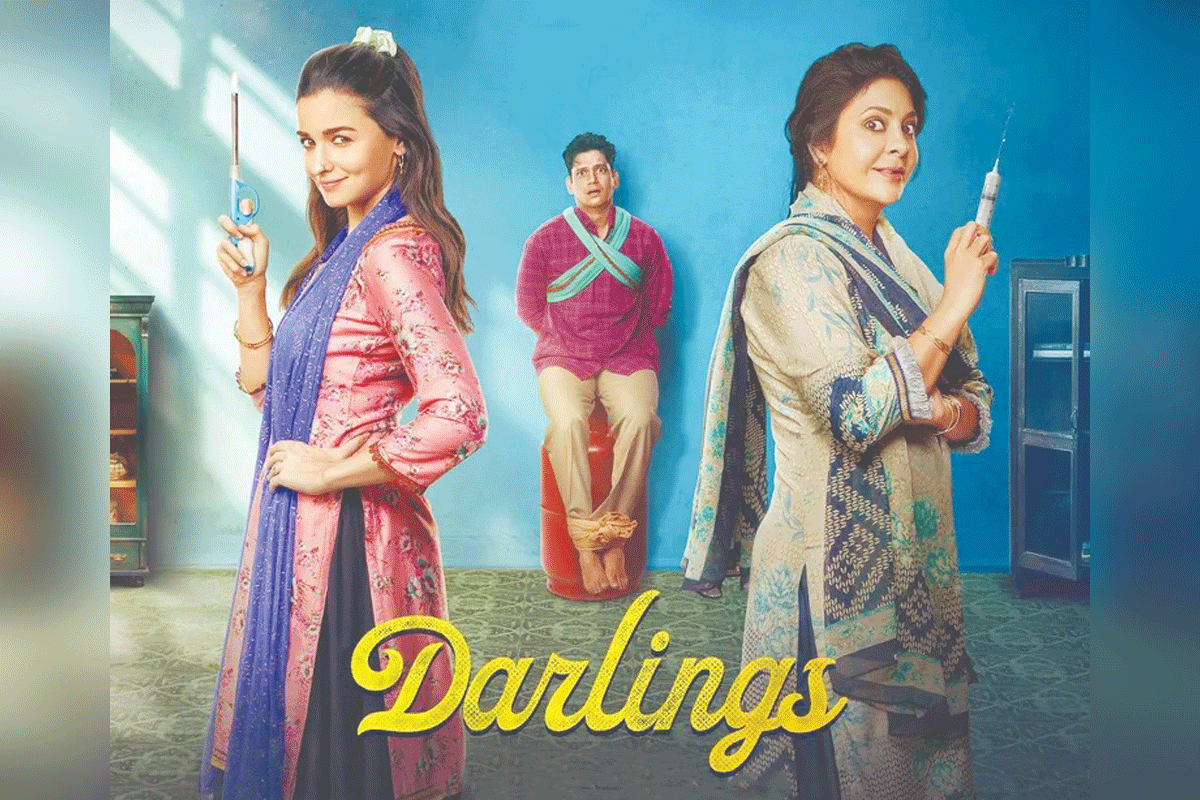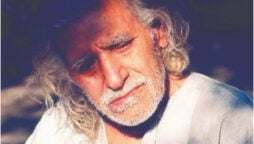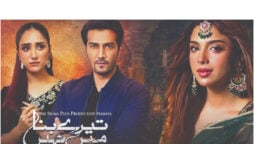
Though Darlings tackles a serious issue of domestic violence, the film avoids the temptation to be exceedingly preachy
Never judge a film by its trailer. This is a lesson that sceptics who had impulsively taken to social media after watching the promos of Darlings must have learnt once the film came out on Netflix. Prior to its release on the streaming service, the Alia Bhatt-starrer was criticised for glorifying domestic violence against men — an ill-founded claim that acts as a counter to the fundamental aim of the film. In retrospect, the furore and cynicism surrounding Darlings seem a tad excessive, especially because there wasn’t such a vast difference between the audience’s expectations and the filmmaker’s creative vision.
The premise of the film is unnervingly realistic — a nod to the searing accounts of domestic abuse that are reported in the news with alarming regularity. It is, therefore, an encouraging sign that Darlings has clocked in over 10 million viewings within three days of its release on Netflix. Domestic violence is often dismissed as a private matter, even though those who are subjected to cruelty at the hands of their spouses are entitled to copious legal safeguards and remedies. That a non-English, South Asian film on the subject has attracted considerable attention on the streaming service is a commendable accomplishment.
Though it tackles a serious theme, Darlings avoids the temptation to be exceedingly preachy or wax eloquent about the merits of a specific course of action. Instead, the film draws its creative thrust from a compelling storyline and convincing characters. At the same time, the makers have shown a willingness to mine the comic possibilities of the plot without trivialising the overarching issue of domestic abuse.

The film begins with a deceptive happily-ever-after — a clever narrative technique. The opening scene has the trappings of a love story that couldn’t possibly lose its steam. Indian rom-coms often end with the love-struck pair tying the knot after an arduous struggle against all those external agents that threaten to keep them apart. Darlings starts with Hamza (Vijay Varma) informing Badru (Alia Bhatt) that he has bagged a government job and can now marry her. By reversing the conventional rom-com formula, the Alia Bhat-starrer creates the illusion that the demons that haunted Hamza and Badru’s marriage have been put in rest. However, it soon becomes apparent that the real or perceived demons casting a shadow on their lives don’t have an external source; they are seeded within our psyche. In Hamza’s case, the demon lies within his hands whereas Badru’s optimism becomes her undoing.
The illusion of blissful domesticity is shattered within minutes in a subsequent scene where Hamza is shown beating Badru to a pulp over a trivial matter. Violence is a regular intruder in their marriage. Badru, who is an optimist at heart, is determined to not allow it to become the poison that decimates her marriage. Her mother, Shamshu (Shefali Shah), believes that Hamza will not change at any cost. She urges Badru to walk out on her husband or, if the situation escalates to a drastic degree, adopt a more permanent tactic to quell his rage.
Their conflicting outlooks on dealing with the bane of domestic abuse propels the story towards its dramatic denouement. With time, Badru discovers that her optimism is rooted in a reluctance to accept her husband’s flaws.

As expected, this epiphany doesn’t emerge suddenly, but slowly percolates deep into her psyche. Badru recognises the constraints of her marriage and initially find ways to exist with them. With the naivety of someone who dotes on her spouse, she expects him to change and resists all wise counsel to put him behind bars. Once the abuse becomes increasingly difficult to beat, she flirts with the idea of teaching him a lesson — that too with the intention of helping him realise his mistakes. As the film progresses towards its sizzling conclusion, her intentions morph into a gradual recognition of her own hunger for respect. It is only after a series of bizarre, comic and unnerving events that Badru realises she holds the key to her own destiny. Darlings ought to be commended for painting a realistic portrait of a survivor of domestic abuse. Badru’s emotional trajectory and her tendency to vacillate between two extremes makes her all the more believable and potent. Meanwhile, Shamshu acts as a narrative foil — a striking reminder of the possibilities that Badru could pursue, but consciously avoids.
The film benefits from a crisp, far-from-melodramatic script that prevents the narrative from lagging at any point. Shah, Bhatt and Varma have delivered stellar performances in fleshing out the tragic flaws in their respective characters to great effect. Shah essays her role with incredible finesse that matches the aura of mystery embedded deep within Shamshu’s character.
Darlings maintains a darkly comic feel that mirrors the techniques used in cinematic masterpieces such as Andhadhun. It would be an exaggeration to claim that the film measures up to the high benchmark set by Ayushmann Khurrana’s black comedy crime thriller. Even so, it is refreshing to watch a film that takes on a serious issue without taking itself too seriously.
Gripping, devastating and compelling, Darlings makes a poignant comment on the discomfiting, toxic dimensions of marital relationships.

Catch all the Breaking News Event and Latest News Updates on The BOL News
Download The BOL News App to get the Daily News Update & Live News.












 Read the complete story text.
Read the complete story text. Listen to audio of the story.
Listen to audio of the story.